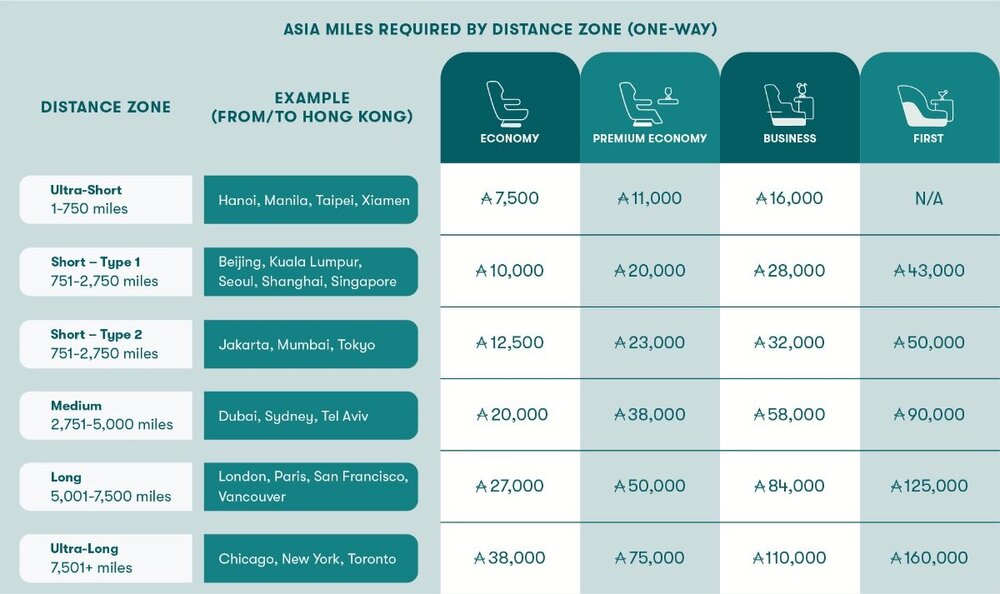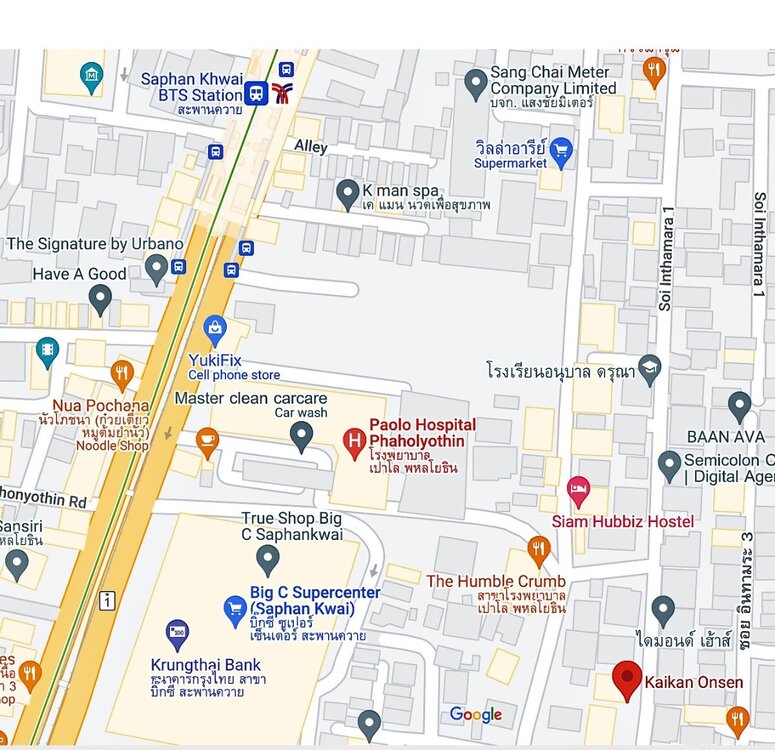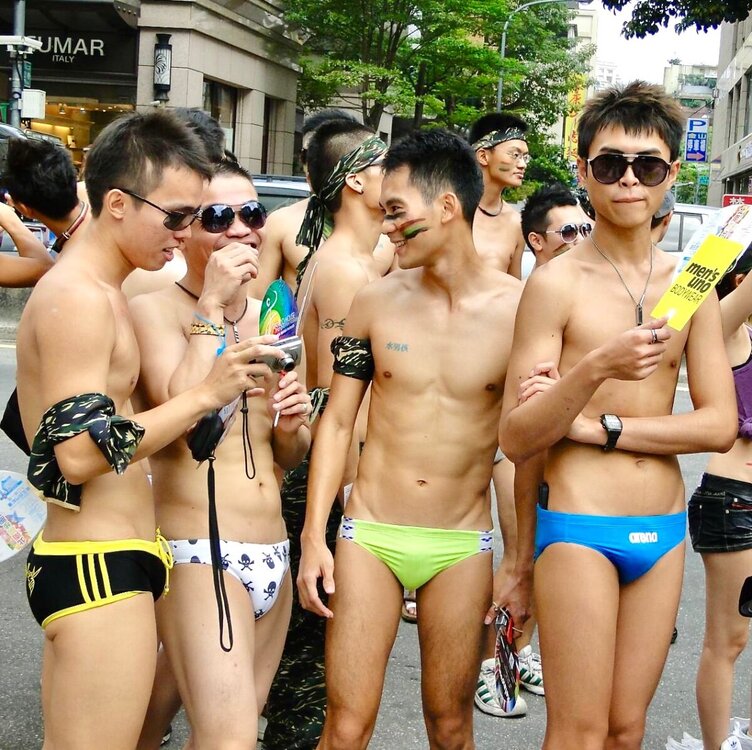
PeterRS
Members-
Posts
6,839 -
Joined
-
Last visited
-
Days Won
403
Content Type
Profiles
Forums
Events
Everything posted by PeterRS
-
I can remember my first couple of flights to Singapore at the start of the 1980s when the city's airport was located at Paya Lebar. There were relatively so few flights, a dual carrageway road passed through the taxiway. This had to be closed every time a plane had landed or was about to take off! Changi only opened at the end of 1981! More recently, many will recall how Hong Kong's single runway Kai Tak which closed in 1998 had the scariest landing if the flight arrived from the west. Descending low over the Kowloon peninsula, the aircraft had to make a sudden right turn just seconds before hitting the runway. It used to be said that Cathay Pacific pilots could identify not only those apartments with the televisions on but also the channels which their owners were watching! Not all went well with the landings as this vdo of a Thai Airways 747-400 illustrates. Kai Tak's problem always was that the runway did not align with the summer and winter monsoon winds. Extending from north west to south east, the summer monsoon comes in from the south west and in winter from the north east. But it was the impossibility of extending Kai Tak further that resulted in its closure and the development of the new airport north of Lantau island. The third runway at the new airport opened exactly a year ago today.
-
Funny now to recall that when BKK opened, the government wanted to shut down Don Mueang!
-
Isn't the problem here the actual legal costs of suing in a country 9,000 kms away from home like Thailand where laws sometimes appear to be fluid and dependent on the verdict given by just one judge (no juries in Thailand) and whose verdicts can be, shall I say, 'odd' given the facts of a case? In case you did not see the recent thread in which I mentioned the infamous Spice Trade trial in the rearly 2000s about the arrest of the directors of Utopia Tours, can I suggest you read the following. It is long but a fascinating - some might say horrifying - look at the Thai justice system. In all cases everything depends solely on the judge. In the Spice Trade case he clearly disliked gay magazines and based his erroneous judgement on that. If a litigant is expecting to be awarded substantial costs when the defendants will point out a clause in tiny print buried somewhere in the text in a language the judge will not fully understand, I would have absolutely zero confidence in winning the case! https://web.archive.org/web/20050606015724/http:/www.yawningbread.org/arch_2005/yax-435.htm
-
Can we tell massage men that oil breaks condoms?
PeterRS replied to zoomomancs's topic in Gay Thailand
I have no idea if you are actually replying to my post or to an earlier one made by another poster because it seems to have little to do with mine. But if the reply is to mine, let me tell you that i have never smoked and I have never taken recreational drugs - except once in Marrakech more than 40 years ago! As for alcohol. it is one of the joys of life provided it is taken in moderation and usually in the company of others. I certainly enjoy some alcohol but rarely beer and usually as an accompaniment with food. My partner and friends consider I look quite a few years younger than my age! Because life is about balance, about enjoyment, companionship, making decisions and weighing up compromises - amongst others. It is not, as most of your posts seem to suggest, about sex, concern about your erection, illness and old age. Naturally these are factors that have to be weighed into that balance. But there is far more to life and if you fail to take the opportunities that life throws at you and fail to find consistent enjoyment, then you are far more likely to look your age - in my view. -
Can we tell massage men that oil breaks condoms?
PeterRS replied to zoomomancs's topic in Gay Thailand
That's a more than outrageous comment in my view! Do you really believe that someone infected with syphillis iis going to enjoy life as much as he would if he did not have syphillis? In my view you seem to have a rather unhealthy 'thing' about ageing as is born out by your nickname. We can all "go" - as you put it - at any time, or don't you believe that? Furthermore, some of those in their 70s today are likely to live into their 90s. And I for one doubt if any of them would actually be happy living with syphillis! -
I went to dream boys last night and drinks price is horrendous
PeterRS replied to Wellhellothere's topic in Gay Thailand
That may certainly be true in Tokyo, but I have been in Paragon in Bangkok several times in the last fortnight. You cannot keep people away from quite long queues at the stores of most designer labels, especially Hermes, Gucci & co. And these are certainly not "poor' people given the way they dress. Some will unquestionably be foreign tourists, but quite a few are youngish Thais. That said, I don't think I have ever seen older Thais queuing. I can recall the decade of stagnation (the 1990s) in Tokyo when department stores were very concerned that those who had previously purchased extremely expensive designer goods were almost afraid to wear them in public. So there would be special nights when owners of such goods could come to wear them and wander around the stores showing off their purchases! Somehow I find it funny to think of middle-aged ladies popping into the loos to change from their Burberry macs to show off their sable fur coats. The world of high-end watches is far larger than most of us probably expect. The most expensive is said to be the Graff Diamonds Hallucination watch valued at US$55 million (I never heard of Graff before today!) I have heard of Patek Philippe, though, but not of its Grandmaster Chime - a snip at US$31 million! A very long time ago when I left one company after 8 years, I decided I'd like a nice watch. I'd always fancied a classic and classicallly simple Patek Philippe with an extremely simple dial with Roman numerals, a small second hand and a gold dimpled surround. I knew the most I'd get from the company would be a lunch but thought I might give it as a present to myself. Discovering it was US$5,000 there was no way I'd buy it. However, it so happened that one of our clients was the agent for Patek Philippe. I called him, told him how much I loved that watch and would like to have one. I expected him to offer a discount. No such luck. "Not company policy." He later called me to say there were none of this make of watch in stock. But a new batch would soon arrive. As he was leaving on vacation, he'd told his manager to have one set aside for me. As I was about to say there was no way I could afford it, he said for me there would be a 50% discount! Even then, it was far too expensive and I did not pursue the matter. Just as well because if you do have a high end watch, it is important that it is serviced every 3 years. I cannot believe that is especially cheap! I'd never have a Rolex, though, because I am certain around half the price I'd pay would be what Rolex pays in advertising at events like Wimbledon. Same with Nike which pays humungous amounts to athletes to wear their swoosh. It paid Michael Jordan US$60 million annually. As a result of royalties, that has risen today to US$100 million per year. Roger Federer got US$100 million for a 10-year deal. Rafael Nadal is said to make slightly more. Before his fall from grace and form, Nike paid Tiger Woods US$100 million for 5 years. Rory McIlroy gets US$200 million for 10 years. But Nike's biggest sponsorshp is for the aging soccer star Cristiano Ronaldo now playing in Saudi Arabia. He earns US$24 million per year from the company. And it is the youth market that the biggie sponsors are after. Soon we will know what mega-deals 20-year old tennis Grand Slam winner Carlos Alcaraz will be signing. He has fantastic skills, youth, good looks and great manners on his side. Assuming he goes on winning and attracting gazillions to his social media, I'll put money on the table that the total will be in excess of anything so far dished out! -
Can we tell massage men that oil breaks condoms?
PeterRS replied to zoomomancs's topic in Gay Thailand
I liked the slogan and cartoon on T-shirts that were commonly seen on Silom and other Bangkok street vendors 20 and more years ago - AIDS KILLS Don't Be Silly Get That Condom On Your Willy -
Not sure how many will use Asia Miles as their primary airline miles programme. If you do, be aware that almost all awards will soon rise, some significantly. October 1 is the date. So if you want to get rid of miles at the old rates, get your booking in before then. In fact, get it in several days beforehand. Experience thaught me that leaving an award request to the last date resulted in all phone lines being clogged and miles lost. The one consolation is that miles remain in your account as long as you use or earn even one mile within 18 months. Then they will remain in your account.
-
A new Japanese-style onsen is opening next week, with a soft opeing tomorrow. Unlike the still relatively new Yunomori Onsen on Sathorn Soi 10, this one is only for guys. On the other hand, unlike Yunomori which opens at 10:00 am and closes around midnight, Kaikan Onsen will be open from mid-afternoons till the early morning hours. Whether that means there will be any action I do not yet know. I have also been told the owner operates at least one gay sauna. So it may be worth a visit. Location is near Saphan Kwai but please note it is closed on Wednesdays and Thursdays. I have read somewhere that there will be a limit of 50 patrons at any one time. Hence the sugestion on the website that reservations are made in advance. Entrance is 450 baht making it 100 baht cheaper than Yunomori - unless you are 65 and over in which case Yunomori has a special rate of 300 baht. The Yunomori seems considerably larger. Although the photos on the website below feature ladies, the men only section is large, has around 18 showers, 7 pools, sauna, steam room and around 300 lockers. The Japanese-style cafe is available to both sexes for which yukata are provided and the food is excellent. https://www.kaikanonsen.com On the map, Saphan Kwai Skytrain station is on the upper left and the onsen is on the bottom right. https://www.yunomorionsen.com/sathorn/onsen/
-
Can I ask what was the amount for Personal Accident? Seems I should consider your insurance company if that's possible.
-
So true. You just have to look at Brits. Once based outside of the UK, our National Insurance pension (kind of like Social Security) is frozen. Whereas those on a state pension in the UK have enjoyed annual increases, those who happen to have retired here for, say, 15 years are still stuck on what His Majesty's Government decided they should be able to llive on 15 years ago. Inflation was very low for much of that time, but recently it has been in double digits. Who can survive on that without other financial resouces? I can remember the 1970s when the average rate of annual inflation over the decade - average over 10 years! - was 13%. In 1975 alone it was 25%. The 1970s was 'special' in that most of the world was shaken when the price of oil more than quadrupled. But that was followed in the early 1980s by the USA's tight monetary policy. in December 1980, interest rates were hiked to 19%. By late-1982 they were down to 14%. These rates might have been 'special'. But who is to say other 'special' occasions will not arise again in future? Did any of us ordinary mortals foresee the Russian invasion of Ukraine and its effect on the world as a whole? I have made a mess of my finances more often than not and so I am the last person to offer advice. But I will just say one thing. Please save in one form or another a good deal more than you think you might need.
-
I'm glad you found a guy you liked, but surprised you expected him to be verbally proficient as well. The guy is not English or Australian. He's a construction worker in a foreign country with clearly little ability in English. Can I suggest that before your next trip you get someone (preferably big and butch) to pre-record on your phone your requested phrases while in the act. Then all you need to do is set it to play each time! You should be in seventh heaven! It reminds me of a time decades ago when I was escorting a large group to Japan. My assistant was Hong Kong Chinese and spoke excellent English, although obviously with a bit of a Chinese accent. A couple of days before departure, he posted a note on our noticeboard in the hotel lobby. "Please remember to reconfirm your frights!"
-
Just out of curiosity, does any form of insurance over this dreadful form of accident? I assume that if the balcony railing had given way, there could be a lawsuit against the hotel. But that's not insurance and the cost of suing in a country like Thailand 9,000 kms away from home could easily outweigh any award the Court might consider reasonable. I suppose there might be a case to be made for Personal Accident but my experience of such clauses in Travel policies, the amounts tend to be quite small, they are hidebound by conditions and they rarely cover very high medical costs. It's too early to speculate that he might have been pushed or even jumped. In neither case can I imagine insurance companies offering coverage, though. I only hope the family has started a crowd-funding site, although past experience of even these seem rarely to cover the huge costs of repatriation of a patient with serous medical injuries.
-
I'd say enjoy your life whilst you can - whatever your age. Like many my worry as I aged has always been health. What if something should happen requiring major surgery and long term care? I have had friends, sadly most no longer alive, with all manner of medical ailments which have severely hampered their ability to enjoy life. One was so severely overstressed, his body just gave out. So I now realise the important thing is to know your medical situation and, as it were, enjoy life around that. For years I have had a minor medical ailment in my digestive sytem that requires a course of medication every 6-8 months or so. When I had no choice but change insurance policies, this being a pre-exisiting condition was not covered. So with funds being tight, I enrolled at the public King Chulalongkorn Hospital across from Lumphini Park. I cannot stress enough that the doctor I see there is fantastic. She spends three days a week in public hospitals and three in expensive private ones. Sure, the facilities are not up to the standard of Bumrungrad or BNH and waiting lines are considerably longer. But when her consultation fee is 200 baht and the facilities charge 50 baht compared to 1,600 and 350 at Bumrungrad, I'll happily put up with some incoveniences. When I first consulted her and went through my history, she decided she wanted a second opinion. She had me do a CT scan which had never been recommended at Bumrungrad. That threw up a cyst on the pancreas. Knowing how deadly pacreatic cancer can be, that scared me. She reassured me it was small but fractionally larger than she was comfortable with and so had me do an MRI to check if there was anything underneath it. Since then I have had 3 more MRI scans at 6 monthly intervals and I've now had two on an annual basis. Nothing has been found and next year should be my last MRI. I estimate the cost of the various scans has been well under a fifth of that at a private hospital. Prior to each scan, a cheap kidney function test has been required. Thankfully, no problems. At the end of this month I have an appointment with a Professor of Retinology about removing the start of cataracts and repairing a tear in one of my retinas that I have had for 25 years. The cost will again be less than a fifth of that quoted 6 months ago at Rutnin Eye Hospital. I did splash out at the start of last year when BNH offered 65% off certain procedures like colonoscopy, gastroscopy, heart MRI and carotid artery unltrasound. Having been certain that with my lifestyle and work-related stress, my heart would not be in prime condition. I did the lot and got a completely clean bill of heath. That cheered me up no end. So far, therefore, medical conditions have not stopped me enjoying life to the full. And I know that with luck my body is unlikely to crack up any time soon. Like @floridarob though, if I should be run over by that bus tomorrow, I know I would take my leave of the world with a smile on my face. There are a dozen or more guys already up there I'll be delighted to see again. On the other hand, if the trapdoor were to open, there are likely to be a lot more down there that I guess I'd rather not see again LOL.
-
I have a few pics of near naked guys at the Taipei Parades I have joined. For those not acquainted with gay life in Beijing, Destination is the hottest gay club in the city. I suppose this guy should be regarded as clothed - with balloons!
-
I have a simpe rule. If going up on an airport escalator, my suitcase is on the step in front of me, my hand firmly on the handle. At the end of the escalator, I lift the case slightly so the transition to terra firma is simple. If going down, the case on the step behind me. I am therefore always in control of it. I have seen quite a few instances of passengers who lose control of their cases because either the case is in front of them going down or behind them going up. I have also seen at least six instances of passengers at BKK with over packed trolleys going down the moving walkway to the taxi rank with the trolley in front. When it comes to the end of the walkway, the trolley somehow snags slightly and all the bags fall off. Instead of getting out of the way, these passengers merely stand at the foot thereby causing near chaos behind them. Large signs illustrating how to deal with suitcases and trolleys could help.
-
Darn it! I knew I had forgotten something! 🤯
-
Not wholly accurate, dear @vinapu. Slavery from Africa was introduced to the USA in 1619. A few years earlier, the Pilgrim Fathers met members of the native American Nauset tribe. So the presence of others than white immigrants was well known for over 150 years before Jefferson made his Declaration. Thereafter there have been endless examples of "inalienable rights" being untrue. The genocide of many millions of native Indian tribes who stood in the way of the country's expansion westards. The Jim Crow laws in the south enforcing segregation. This was seemingly an attempt to heal the wounds between the North and South which resulted in the Civil War, but they are still being felt today. 42 million Americns exist on food stamps. Again not unlike other countries, the small number of rich hold much of the country's wealth compared to the poor. In the USA, the top 1% control 32.3% of the wealth; the bottom 50% hold 2.6%. During the covid years, wealth held by US billionaires actually increased by 70%. According to Polifact and other sources, in 2011 the 400 wealthiest Americans had more wealth than half of all American's combined! I find it rather difficult to align these rights with those about all being born equal and having an equal right to the pursuit of happiness.
-
Funny thing is I have never done this in Thailand, even in the 'old' days (well, my old days!)! But I have met money guys in shopping malls in Manila (decades ago), and others not seeking any money more recently in Tokyo, Hong Kong, Taipei, Kuala Lumpur, Singapore and Melbourne. Gaydar is a remarkable attribute, along with a nice smile and a few words of the local language! I know that hotel staff are not permitted into guests' rooms unless for room service and cleaning. In SIngapore at the 5-star Pan Pacific hotel I once had one cute young guy take toom service a little beyond what I expected. He had brought my breakfast and I thought him especially gorgeous. I was in my bath robe and made sure there was plenty of eye contact. As he was leaving, he said he was going off shift in 30 minutes, Would I like him to come back? Now, that could have meant to collect the room service trolley. But I think we both realised it was more than that. Sure enough, we ended up with 30 minutes of unexpected but very enjoyable sex! I would have loved that to happen in quite a few of the hotels I have stayed in since then. Alas it was a one time wonder!
-
Happy Birthday USA! The world has much to be grateful to you for. But I seriously wonder how much progress has actually been made on that Declaration. It's perfectly clear that, as in many countries, all men and women in the USA are not created equal with those inalienable Rights. 247 years is a long time to make that work. Clearly not long enough.
-
Taiwan has lots of beaches. I guess those of us who visit regularly have less interest in them. I can say that the water off the south coast is crystal clear - far more so than almost anywhere I have visited off Thailand. For those interested there is a gay beach not far from Tamshui station, the west end of the red subway line in Taipei. It's not so easy to find, but I am told there is sometimes activity in the bushes behind the beach. I have also read that there is a nude section but know no-one who has been there.
-
Both spectators and marchers! But let's be clear that there is no full nudity in the Taipei Pride Parade - at least not that I have ever seen in the many Parades in which I have taken part. A small number of young and fit guys wearing their latest skimpy swimwear are often to be seen. But then the weather at the end of October will almost aways be very warm so that marching in briefs must be very pleasant.
-
Apologies! Yes, I took one quote and responded to it. I then thought it useful (to some, perhaps) to edit and add part of your second quote. Unfortunately, it is less easy to add in a second original quote, so I merely added the extra sentence. I did not mean to upset you or imply something you did not say. I acknowledge you made two separate statements.
-
I went to dream boys last night and drinks price is horrendous
PeterRS replied to Wellhellothere's topic in Gay Thailand
Totally agree. I would never be seen wearing one! As an anecdote, my brother decided that he would like a couple of fake ones for himself and his wife. So I got them on Silom and took them on my next trip to the UK. One afternoon when my brother was working and his wife was supposed to be at work, she had to rush home to get something she had left behind. Entering their house, she thought she heard noises upstairs. She is pretty fearless and immediately shouted something. When she got upstairs the window was open and some drawers had been opened. The only things missing were the two Rolexes! I wonder what the thief thought when he tried to sell them! If Rolex takes your fancy, one good place to buy second hand originals is Macao. So many gamblers, it seems, sell theirs for just another evening at the tables and then cannot buy them back. There are stores galore with nothing but Rolexes! -
So I wonder why you think London's Pride Parade is worthy of mention in any South East Asian newspaper? I may have missed it but I don't recall Sydney's Pride Parade being mentioned in the Bangkok Post this year.















